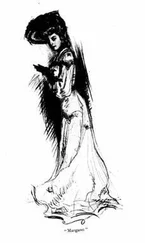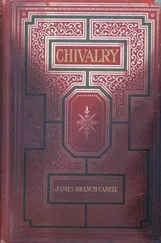James Cabell - Gallantry. Dizain des Fetes Galantes
Здесь есть возможность читать онлайн «James Cabell - Gallantry. Dizain des Fetes Galantes» весь текст электронной книги совершенно бесплатно (целиком полную версию без сокращений). В некоторых случаях можно слушать аудио, скачать через торрент в формате fb2 и присутствует краткое содержание. Жанр: Фэнтези, на английском языке. Описание произведения, (предисловие) а так же отзывы посетителей доступны на портале библиотеки ЛибКат.
- Название:Gallantry. Dizain des Fetes Galantes
- Автор:
- Жанр:
- Год:неизвестен
- ISBN:нет данных
- Рейтинг книги:5 / 5. Голосов: 1
-
Избранное:Добавить в избранное
- Отзывы:
-
Ваша оценка:
- 100
- 1
- 2
- 3
- 4
- 5
Gallantry. Dizain des Fetes Galantes: краткое содержание, описание и аннотация
Предлагаем к чтению аннотацию, описание, краткое содержание или предисловие (зависит от того, что написал сам автор книги «Gallantry. Dizain des Fetes Galantes»). Если вы не нашли необходимую информацию о книге — напишите в комментариях, мы постараемся отыскать её.
Gallantry. Dizain des Fetes Galantes — читать онлайн бесплатно полную книгу (весь текст) целиком
Ниже представлен текст книги, разбитый по страницам. Система сохранения места последней прочитанной страницы, позволяет с удобством читать онлайн бесплатно книгу «Gallantry. Dizain des Fetes Galantes», без необходимости каждый раз заново искать на чём Вы остановились. Поставьте закладку, и сможете в любой момент перейти на страницу, на которой закончили чтение.
Интервал:
Закладка:
Yet the comedy of gallantry has its conventions. There must be quite invaluable papers to be stolen and juggled with; an involuntary marriage either threatened or consummated; elopements, highwaymen, and despatch-boxes; and a continual indulgence in soliloquy and eavesdropping. Everybody must pretend to be somebody else, and young girls, in particular, must go disguised as boys, amid much cut-and-thrust work, both ferric and verbal. For upon the whole, the comedy of gallantry tends to unfold itself in dialogue, and yet more dialogue, with just the notice of a change of scene or a brief stage direction inserted here and there. All these conventions, Madam, I observe.
A word more: the progress of an author who alternates, in turn, between fact and his private fancies (like unequal crutches) cannot in reason be undisfigured by false steps. Therefore it is judicious to confess, Madam, that more than once I have pieced the opulence of my subject with the poverty of my inventions. Indisputably, to thrust words into a dead man's mouth is in the ultimate as unpardonable as the axiomatic offence of stealing the pennies from his eyes; yet if I have sometimes erred in my surmise at what Ormskirk or de Puysange or Louis de Soyecourt really said at certain moments of their lives, the misstep was due, Madam, less to malevolence than to inability to replevin their superior utterance; and the accomplished shade of Garendon, at least, I have not travestied, unless it were through some too prudent item of excision.
Remains but to subscribe myself—in the approved formula of dedicators—as,
MADAM,
Your ladyship's most humble and most obedient servant,
THE AUTHOR.
THE PROLOGUE
SPOKEN BY LADY ALLONBY, WHO ENTERS IN A FLURRY
The author bade we come—Lud, I protest!—
He bade me come—and I forget the rest.
But 'tis no matter; he's an arrant fool
That ever bade a woman speak by rule.
Besides, his Prologue was, at best, dull stuff,
And of dull writing we have, sure, enough.
A book will do when you've a vacant minute,
But, la! who cares what is, and isn't, in it?
And since I'm but the Prologue of a book,
What I've omitted all will overlook,
And owe me for it, too, some gratitude,
Seeing in reason it cannot be good
Whose author has as much but now confessed,—
For, Who'd excel when few can make a test
Betwixt indifferent writing and the best?
He said but now.
And I:
—La, why excel,
When mediocrity does quite as well?
'Tis women buy the books,—and read 'em, say,
What time a person nods, en negligee,
And in default of gossip, cards, or dance,
Resolves t' incite a nap with some romance.
The fool replied in verse,—I think he said
'Twas verses the ingenious Dryden made,
And trust 'twill save me from entire disgrace
To cite 'em in his foolish Prologue's place.
Yet, scattered here and there, I some behold,
Who can discern the tinsel from the gold;
To these he writes; and if by them allowed,
'Tis their prerogative to rule the crowd,
For he more fears, like, a presuming man,
Their votes who cannot judge, than theirs can.
I
SIMON'S HOUR
As Played at Stornoway Crag, March 25, 1750
"You're a woman—one to whom Heaven gave beauty, when it grafted roses on a briar. You are the reflection of Heaven in a pond, and he that leaps at you is sunk. You were all white, a sheet of lovely spotless paper, when you first were born; but you are to be scrawled and blotted by every goose's quill."
DRAMATIS PERSONAE.
LORD ROKESLE, a loose-living, Impoverished nobleman, and loves Lady Allonby.
SIMON ORTS, Vicar of Heriz Magna, a debauched fellow, and Rokesle's creature.
PUNSHON, servant to Rokesle.
LADY ALLONBY, a pleasure-loving, luxurious woman, a widow, and rich.
SCENE
The Mancini Chamber at Stornoway Crag, on Usk.
SIMON'S HOUR
PROEM:—The Age and a Product of It
We begin at a time when George the Second was permitting Ormskirk and the Pelhams to govern England, and the Jacobites had not yet ceased to hope for another Stuart Restoration, and Mr. Washington was a promising young surveyor in the most loyal colony of Virginia; when abroad the Marquise de Pompadour ruled France and all its appurtenances, and the King of Prussia and the Empress Maria Theresa had, between them, set entire Europe by the ears; when at home the ladies, if rumor may be credited, were less unapproachable than their hoop-petticoats caused them to appear, [Footnote: "Oft have we known that sevenfold fence to fail, Though stiff with hoops, and armed with ribs of whale."] and gentlemen wore swords, and some of the more reckless bloods were daringly beginning to discard the Ramillie-tie and the pigtail for their own hair; when politeness was obligatory, and morality a matter of taste, and when well-bred people went about the day's work with an ample leisure and very few scruples. In fine, we begin toward the end of March, in the year 1750, when Lady Allonby and her brother, Mr. Henry Heleigh, of Trevor's Folly, were the guests of Lord Rokesle, at Stornoway Crag, on Usk.
As any person of ton could have informed you, Anastasia Allonby was the widow (by his second marriage) of Lord Stephen Allonby, the Marquis of Falmouth's younger brother; and it was conceded by the most sedate that Lord Stephen's widow, in consideration of her liberal jointure, possessed inordinate comeliness.
She was tall for a woman. Her hair, to-night unpowdered, had the color of amber and something, too, of its glow; her eyes, though not profound, were large and in hue varied, as the light fell or her emotions shifted, through a wide gamut of blue shades. But it was her mouth you remembered: the fulness and brevity of it, the deep indentation of its upper lip, the curves of it and its vivid crimson—these roused you to wildish speculation as to its probable softness when Lady Allonby and Fate were beyond ordinary lenient. Pink was the color most favorable to her complexion, and this she wore to-night; the gown was voluminous, with a profusion of lace, and afforded everybody an ample opportunity to appraise her neck and bosom. Lady Allonby had no reason to be ashamed of either, and the last mode in these matters was not prudish.
To such a person, enters Simon Orts, chaplain in ordinary to Lord Rokesle, and Vicar of Heriz Magna, one of Lord Rokesle's livings.
I
"Now of a truth," said Simon Orts, "that is curious—undeniably that is curious."
He stayed at the door for a moment staring back into the ill-lit corridor.
Presently he shut the door, and came forward toward the fireplace.
Lady Allonby, half-hidden in the depths of the big chair beside the chimney-piece, a book in her lap, looked up inquiringly. "What is curious, Mr. Orts?"
The clergyman stood upon the hearth, warming his hands, and diffusing an odor of tobacco and stale alcohol. "Faith, that damned rascal—I beg your pardon, Anastasia; our life upon Usk is not conducive to a mincing nicety of speech. That rascal Punshon made some difficulty over admitting me; you might have taken him for a sentinel, with Stornoway in a state of siege. He ruffled me,—and I don't like it," Simon Orts said, reflectively, looking down upon her. "No, I don't like it. Where's your brother?" he demanded on a sudden.
"Harry and Lord Rokesle are at cards, I believe. And Mrs. Morfit has retired to her apartments with one of her usual headaches, so that I have been alone these two hours. You visit Stornoway somewhat late, Mr. Orts," Anastasia Allonby added, without any particular concealment of the fact that she considered his doing so a nuisance.
Читать дальшеИнтервал:
Закладка:
Похожие книги на «Gallantry. Dizain des Fetes Galantes»
Представляем Вашему вниманию похожие книги на «Gallantry. Dizain des Fetes Galantes» списком для выбора. Мы отобрали схожую по названию и смыслу литературу в надежде предоставить читателям больше вариантов отыскать новые, интересные, ещё непрочитанные произведения.
Обсуждение, отзывы о книге «Gallantry. Dizain des Fetes Galantes» и просто собственные мнения читателей. Оставьте ваши комментарии, напишите, что Вы думаете о произведении, его смысле или главных героях. Укажите что конкретно понравилось, а что нет, и почему Вы так считаете.



